 On November 12–13, 2024, UConn’s Pratt & Whitney Institute for Advanced Systems Engineering (PW-IASE) brought together researchers, industry leaders, and practitioners for the Workshop on Digital Twins for Manufacturing, held at the Innovation Partnership Building at UConn Tech Park. Hosted in collaboration with the U.S. Department of Energy (DoE) and the National Science Foundation (NSF), the event served as a global platform to explore the transformative potential of Digital Twin (DT) technologies in modern manufacturing.
On November 12–13, 2024, UConn’s Pratt & Whitney Institute for Advanced Systems Engineering (PW-IASE) brought together researchers, industry leaders, and practitioners for the Workshop on Digital Twins for Manufacturing, held at the Innovation Partnership Building at UConn Tech Park. Hosted in collaboration with the U.S. Department of Energy (DoE) and the National Science Foundation (NSF), the event served as a global platform to explore the transformative potential of Digital Twin (DT) technologies in modern manufacturing.
Participants engaged in a dynamic exchange of ideas through keynote presentations, interactive panels, and collaborative working sessions. The workshop’s agenda was designed to address pressing challenges and opportunities in manufacturing, with a focus on the development and application of DTs—virtual models that mirror physical systems to optimize products, processes, and production throughout their lifecycle.
Digital Twin technologies are revolutionizing how manufacturers approach design, production, and maintenance. By enabling real-time data integration and predictive analytics, DTs support informed decision-making and proactive solutions, critical for industries navigating the complexities of modern supply chains and innovation demands. “As the manufacturing sector evolves, DTs provide critical tools for innovation, enabling real-time data integration, predictive analytics, and proactive decision-making,” noted Dr. George Bollas, associate dean of Research for UConn’s College of Engineering and director of PW-IASE.
The workshop tackled key themes, such as improving system efficiency, enhancing resilience, and leveraging DTs for sustainability in manufacturing. Notable speakers and panelists represented a wide array of expertise, from academic research to practical applications in aerospace, defense, and energy sectors. Participants worked toward actionable outcomes, including drafting a strategic roadmap to guide the future development of DT technologies and fostering collaborations across academia, industry, and government.
By hosting this event, UConn reaffirmed its position as a leader in advancing cutting-edge manufacturing technologies. The workshop highlighted Connecticut’s rich industrial heritage, particularly in aerospace, defense, and shipbuilding, while showcasing how innovations like DTs will shape the future of these sectors.
The Workshop on Digital Twins for Manufacturing not only provided a forum for sharing knowledge but also underscored the importance of interdisciplinary collaboration in driving technological progress. As digital twins continue to mature, they hold the promise of transforming manufacturing into a more agile, efficient, and sustainable industry.
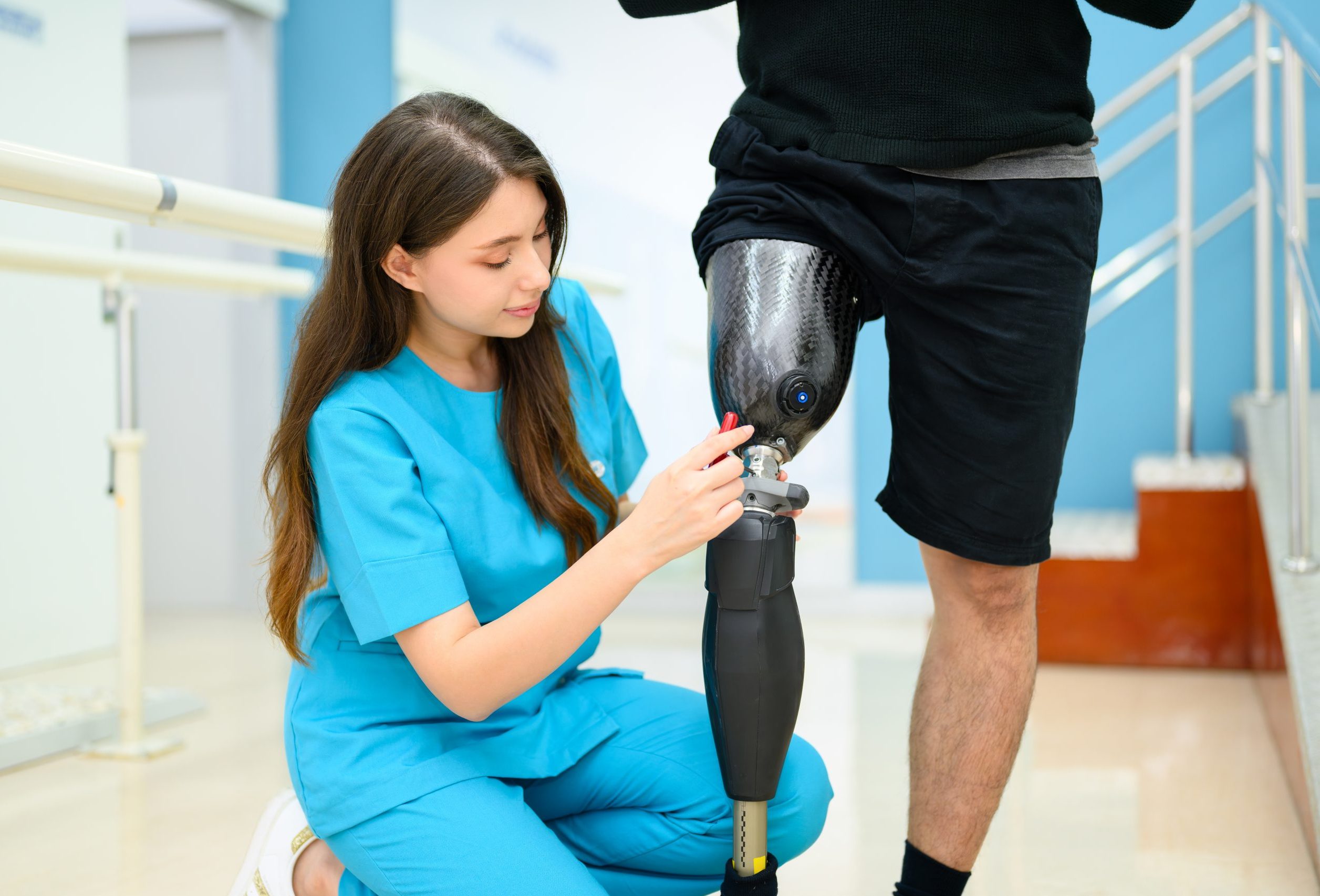 The Nursing and Engineering Innovation Center at UConn Tech Park is spearheading transformative healthcare solutions through interdisciplinary collaboration. By uniting the expertise of the School of Nursing and the College of Engineering, the center aims to drive the creation and commercialization of evidence-based healthcare technologies.
The Nursing and Engineering Innovation Center at UConn Tech Park is spearheading transformative healthcare solutions through interdisciplinary collaboration. By uniting the expertise of the School of Nursing and the College of Engineering, the center aims to drive the creation and commercialization of evidence-based healthcare technologies.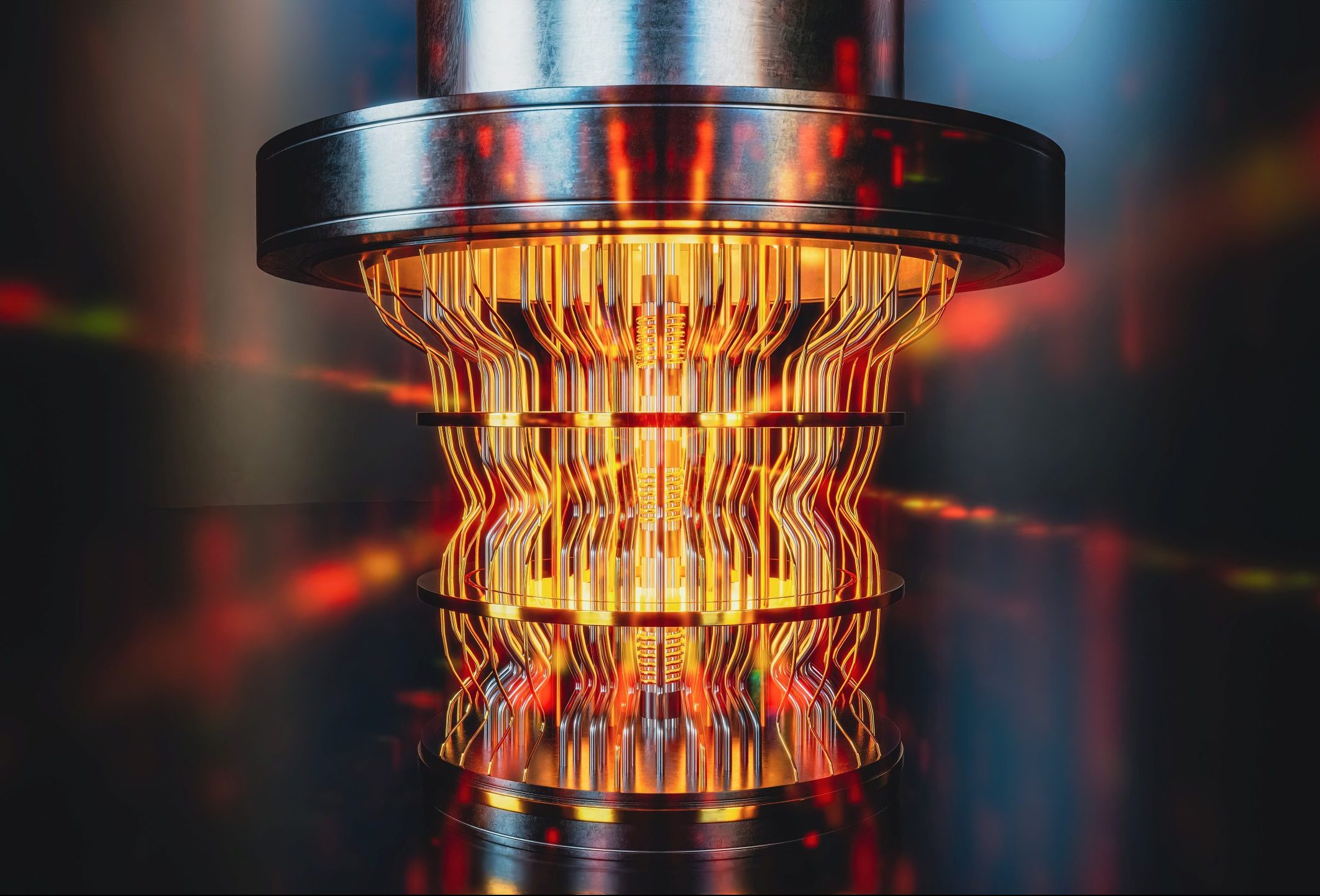
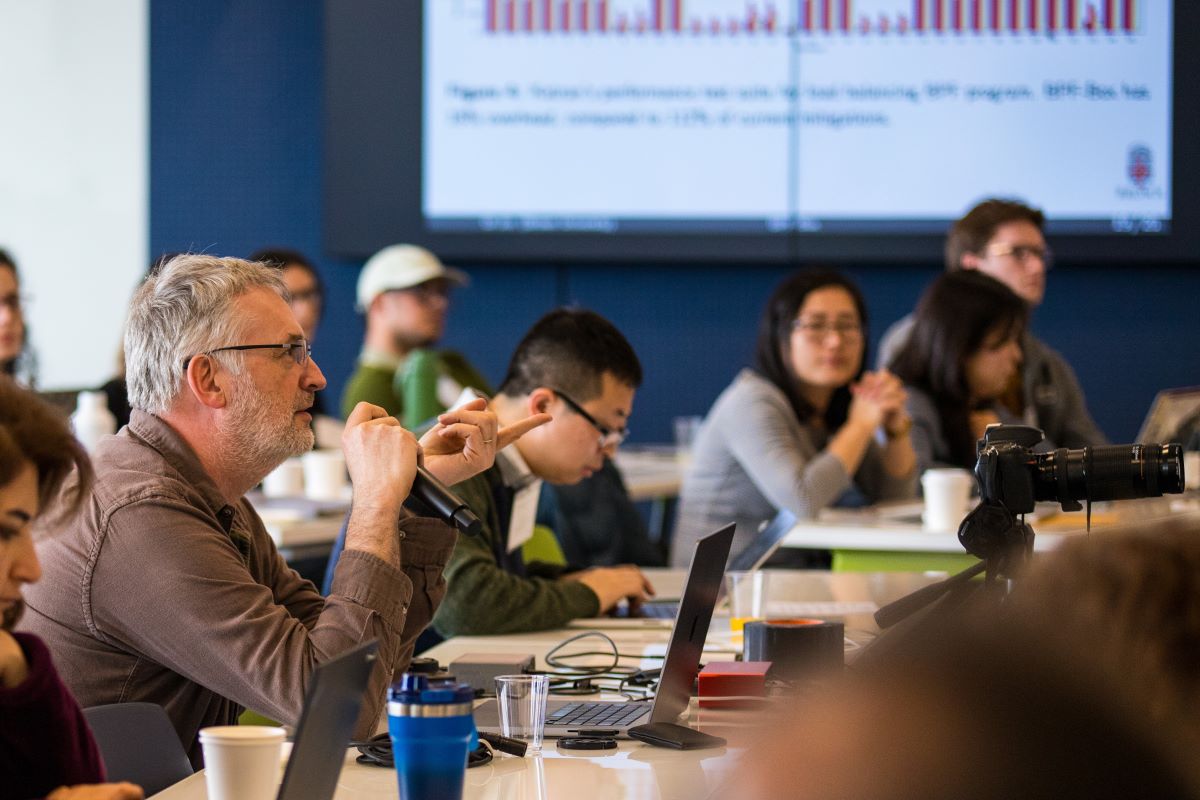

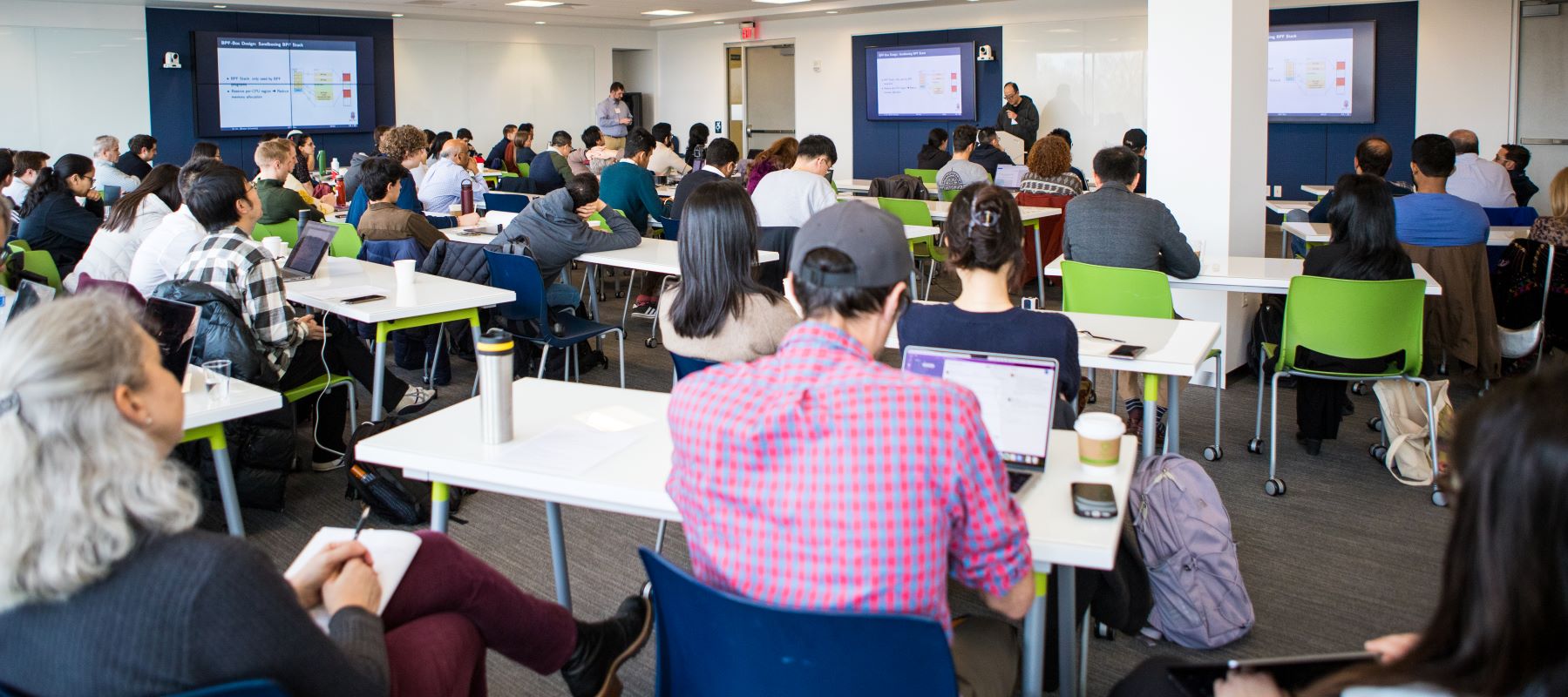
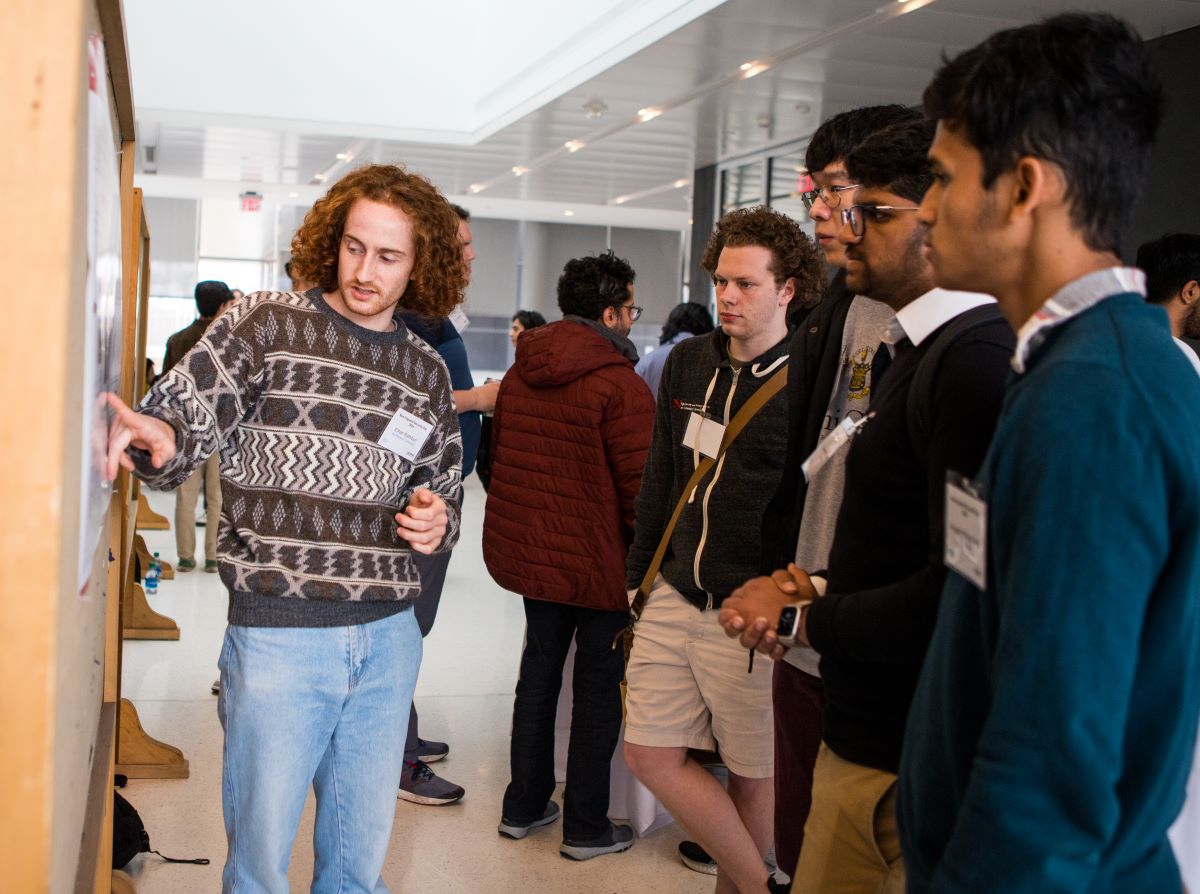
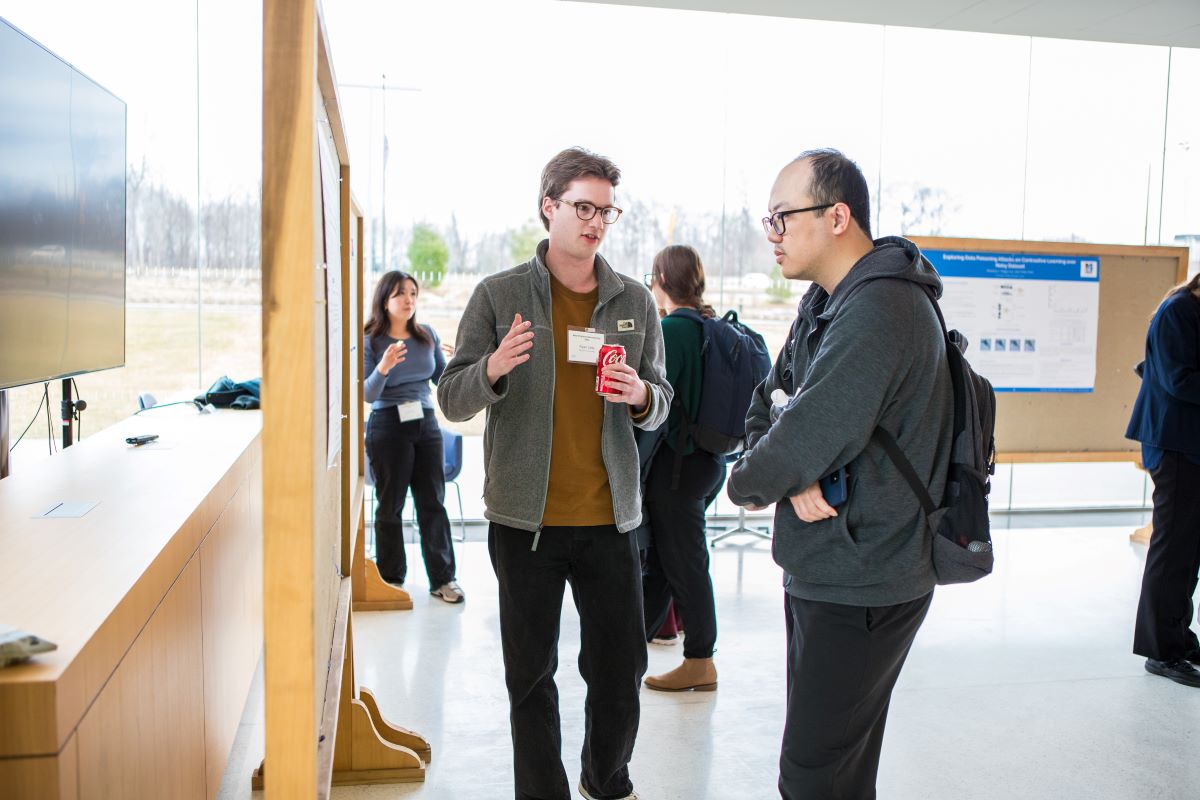
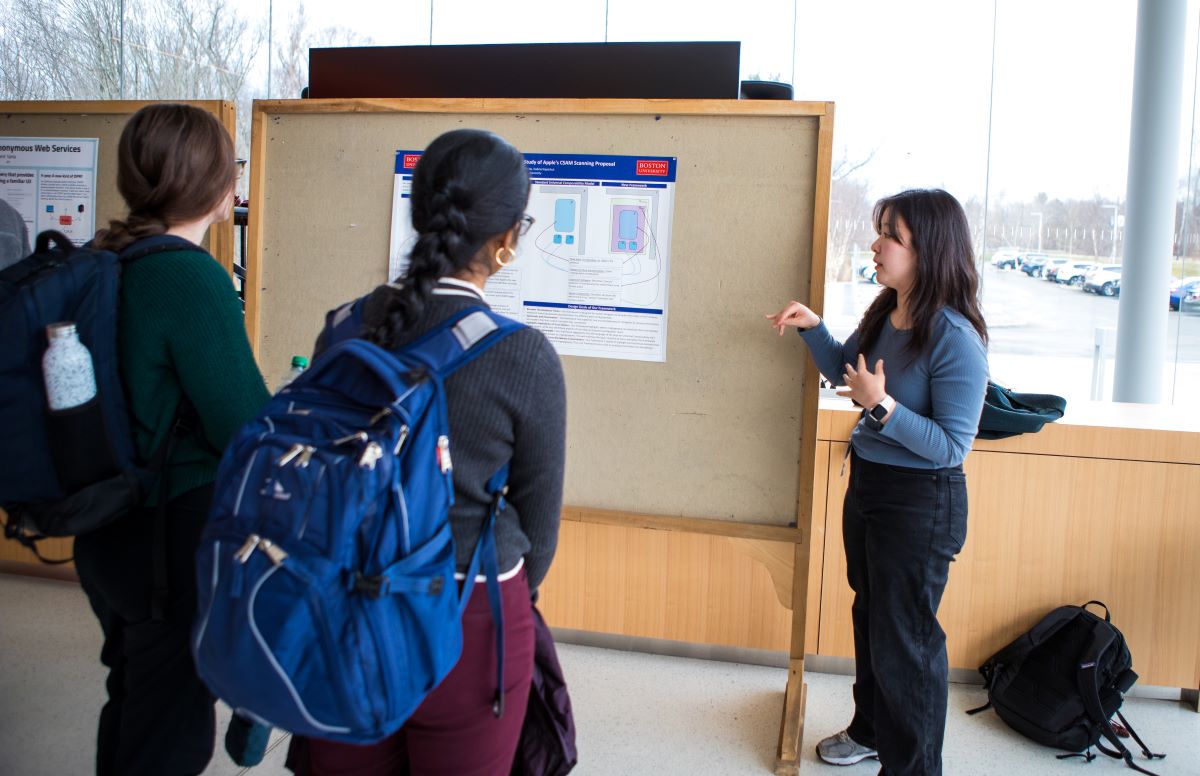

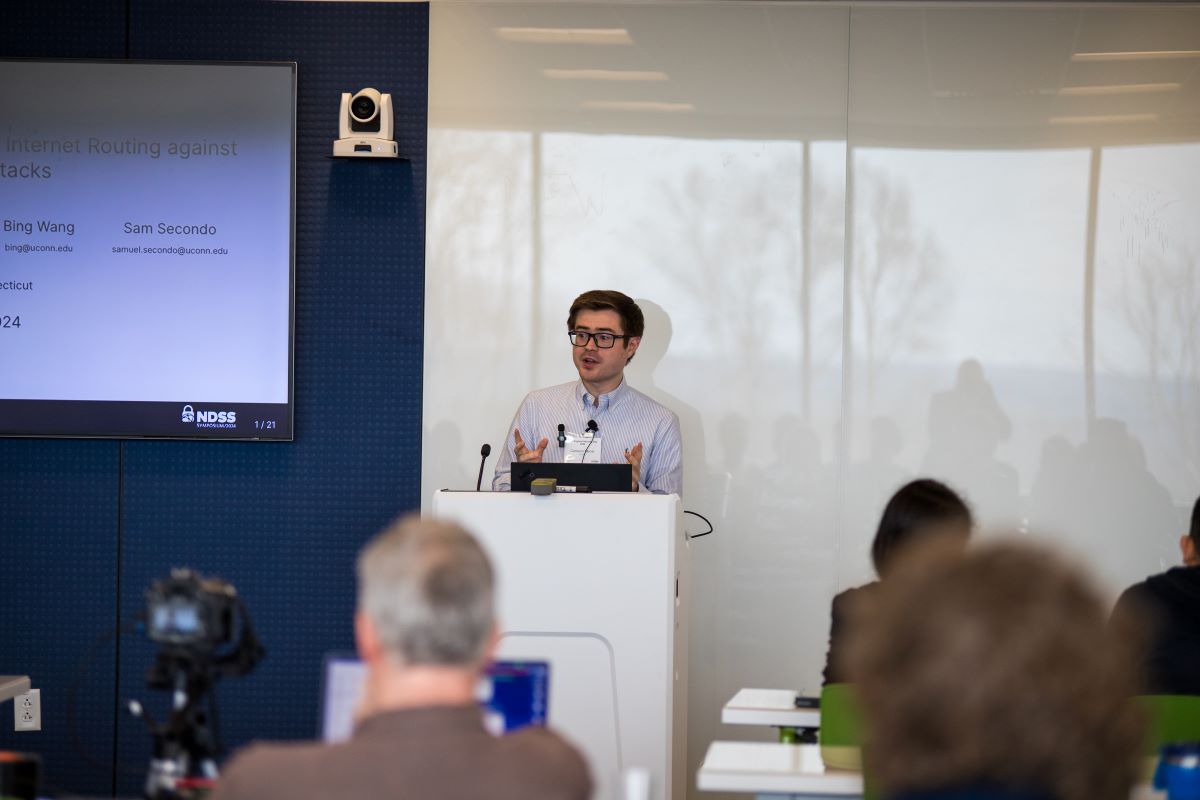
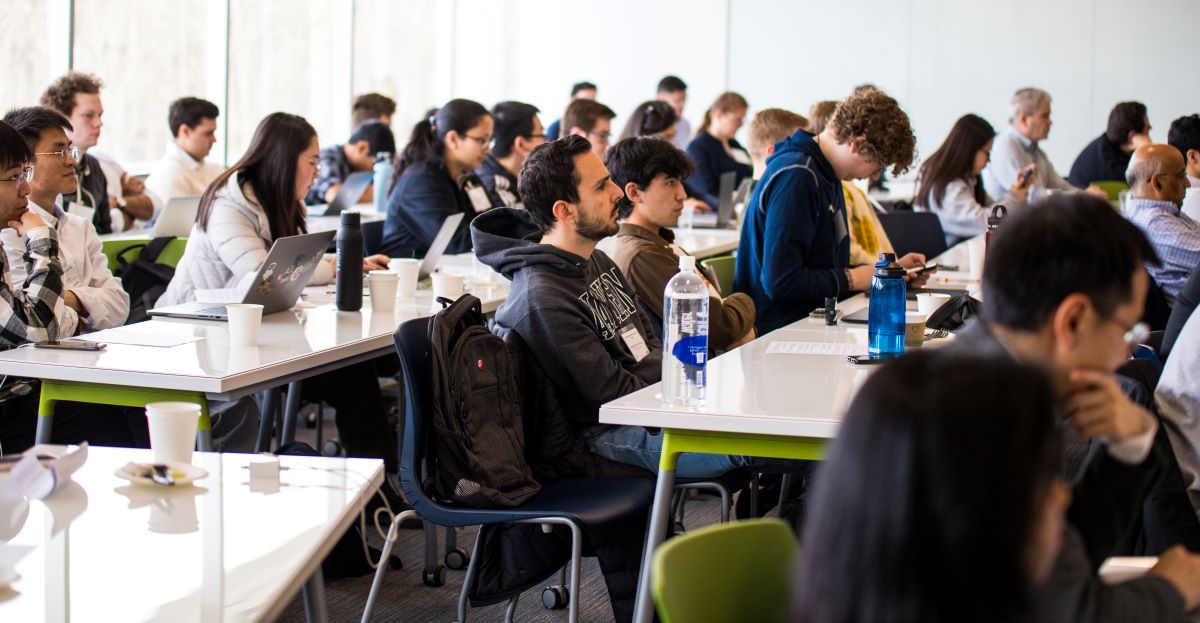


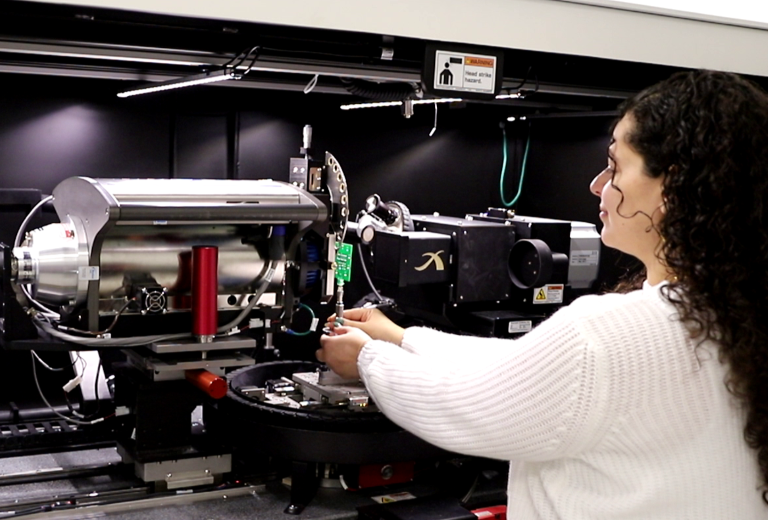 In the recent publication “Characterization of Reverse Osmosis Membranes Under Compaction Utilizing 3D X-ray and 3D FIB Correlative Microscopy”, UConn PhD Graduate Assistant Yara Suleiman and coauthors expand upon their prior research that introduced a novel process for evaluating the performance of RO membranes in water treatment facilities. The innovative approach, utilizing state-of-the-art 3D X-ray and 3D FIB correlative microscopy, offers promising prospects for shaping advancement in membrane technologies that can drive more efficient, less costly desalination, with broader implications for sustainable solutions to the global freshwater crisis.
In the recent publication “Characterization of Reverse Osmosis Membranes Under Compaction Utilizing 3D X-ray and 3D FIB Correlative Microscopy”, UConn PhD Graduate Assistant Yara Suleiman and coauthors expand upon their prior research that introduced a novel process for evaluating the performance of RO membranes in water treatment facilities. The innovative approach, utilizing state-of-the-art 3D X-ray and 3D FIB correlative microscopy, offers promising prospects for shaping advancement in membrane technologies that can drive more efficient, less costly desalination, with broader implications for sustainable solutions to the global freshwater crisis.